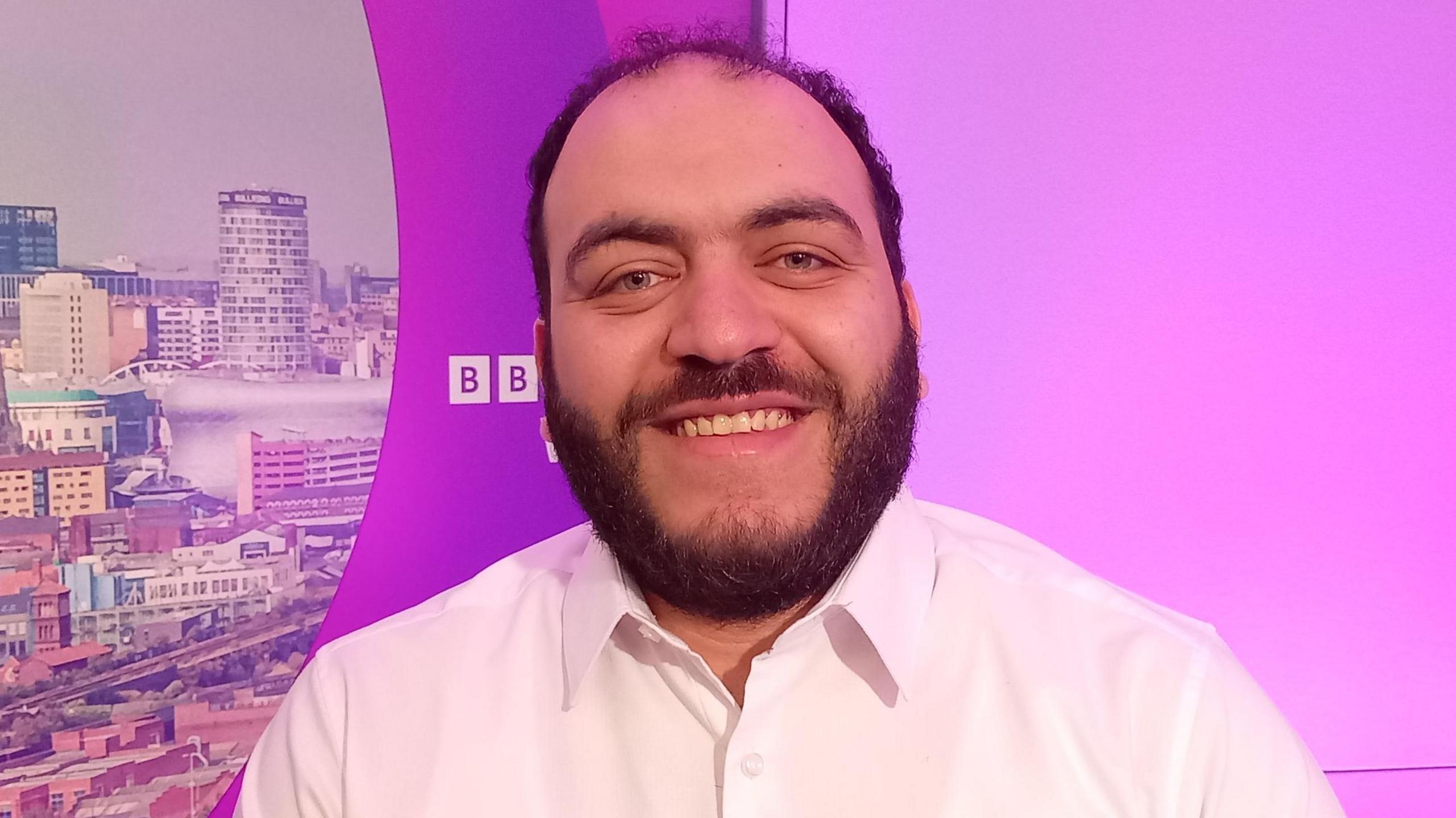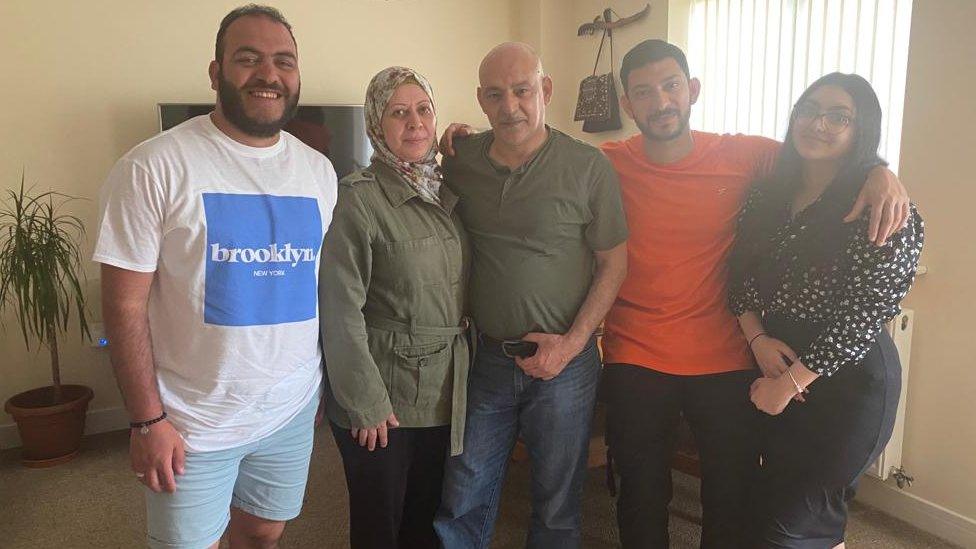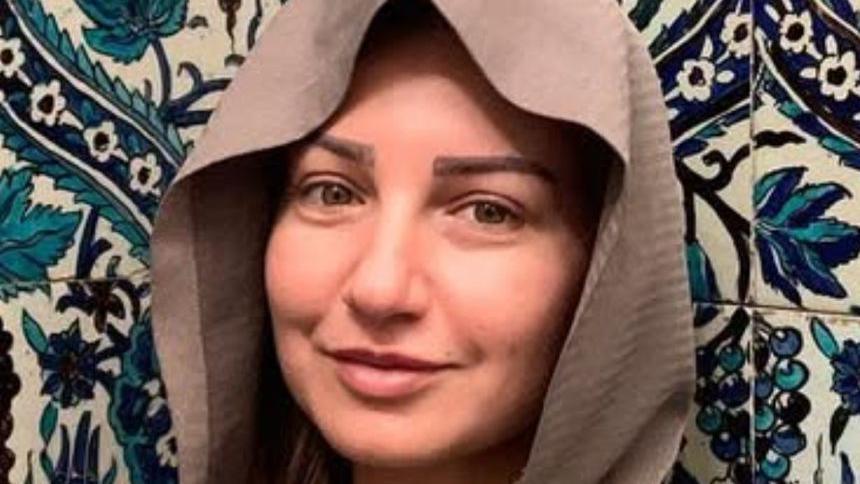'I want to return to Syria and celebrate freedom'

Nour Al-Baarini came to live in Birmingham with his family in 2016
- Published
After 14 years away from his homeland, a Syrian refugee is dreaming of returning to the place he was born and celebrating the freedom of his people.
Nour Al-Baarini, who came to live in Birmingham with his family in 2016, spoke of his shock after watching the fall of Bashar al-Assad's 24-year regime.
Mr Al-Baarini remembers the exact moment he left his home on 29 January 2012 at 11:00 GMT and told the BBC he has been dreaming to go home ever since.
"I want to go back to where I grew up and celebrate being free", he said.
Syrian rebels ended Assad's rule, with opposition forces taking the capital and forcing the president to flee on Sunday.
Mr Al-Baarini, who is studying for a PhD, spoke of an emotional 48 hours over the weekend.
He told BBC Radio WM: "I did not sleep for 48 hours trying to talk to my people for pictures and videos of what was happening. I wish I was there now.
"It's a shock to see all of these things happening within 11 days. I want to be there after 14 years being away from my home - Syria is finally free.
Assad fled to Russia in the early hours of Sunday, where he and his family have been given asylum, after rebels captured the capital Damascus.
Almost 60,000 people were tortured and killed in the prisons run by Assad, UK-based monitoring group Syrian Observatory for Human Rights said.
The civil war saw more than half a million people killed and millions more displaced.
The computing lecturer said: "I have family members who have disappeared since 2012. We don't know anything but we have hope they are still alive.
"It's very emotional and heart-breaking. There are mothers that still have hope their sons and daughters are still alive.
"We want no more conflicts, no more war. Our hope is peace and stability we want leaders to listen to us and not ignore the people."
'I couldn't say a word'
Mr Al-Baarini said Syrian people, previously too afraid to speak out under the regime, could finally do so.
"I couldn't say a word. Even when I came to England I couldn't say anything because that would harm anyone that is related to me back home.
"We were afraid of talking even though we weren't there. We were forced to leave our homes, forced to do and say a lot of things.
"It shaped who we are as people. Now we can tell what happened with us - we can say what happened in the last 55 years."
On returning home, he said he had friends leaving the UK immediately.
"I have friends going back tomorrow to live [there]. We are so attached to our lands and our home. We were forced to be refugees.
"Even if I had to sleep on the streets I wouldn't mind it, it's the place I was born."
Get in touch
Tell us which stories we should cover in Birmingham and the Black Country
Follow BBC Birmingham on BBC Sounds, Facebook, external, X, external and Instagram, external.
Related topics
- Published10 December 2024

- Published22 June 2022

- Published9 December 2024

- Published8 December 2024
